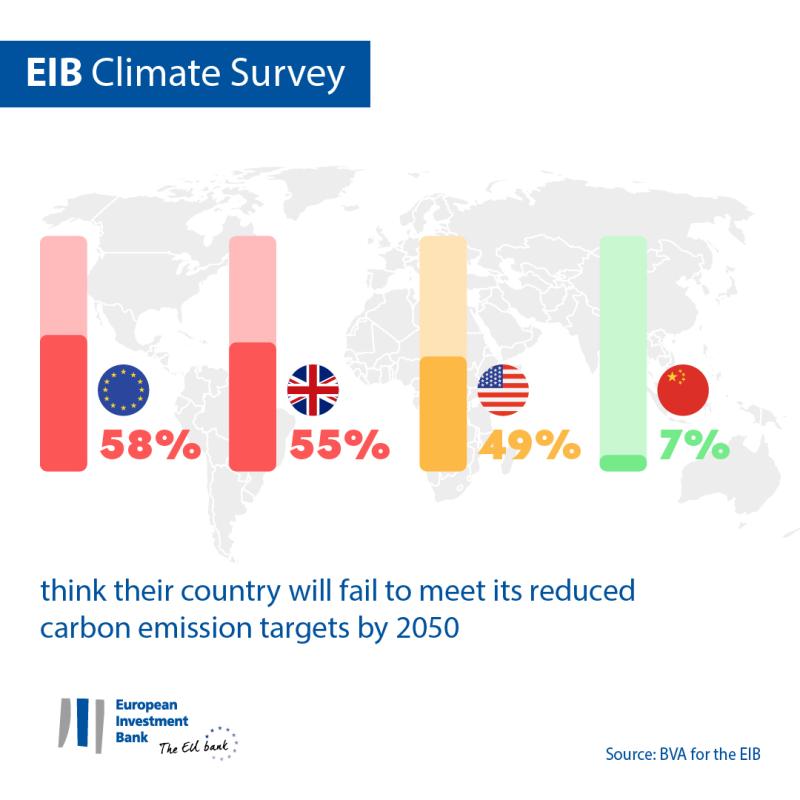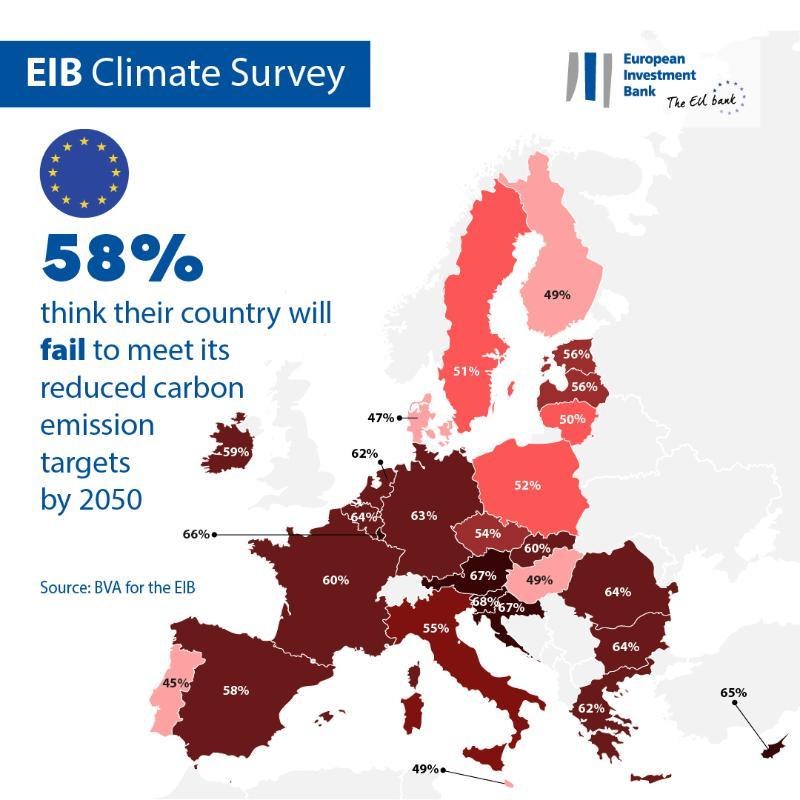Citizens are no longer satisfied with political pronouncements. On climate change, government trust is low. People demand action.
We must change the way we tackle the climate crisis. Our current approach is too slow and risks a catastrophic failure to meet climate targets. Moreover, people are no longer satisfied with political pronouncements. They demand action.
The European Investment Bank’s annual climate survey finds that 75% of EU citizens and 69% of Britons are more concerned about the climate emergency than they believe their government is. That’s true of Americans, too (59%). Worse, roughly half of citizens in those countries say the difficulty in solving the climate crisis is above all because of government inactivity.
For those of us steering public organisations, this is a dire warning. If citizens stop trusting in government’s ability to battle climate change, many may conclude there’s no hope of beating global warming and will simply give up. Governments would face a tougher task mobilising their citizens behind the new and ongoing climate programmes that are so vital to our future.
We can’t allow that to happen.

For climate change, government trust needs a way back
The way to remedy this lack of public faith is to invest massively in concrete climate projects and innovations—right now. Climate action represents a tremendous business opportunity and we, as policymakers, need to be brave enough to embrace it. Starting next Sunday in Glasgow, COP26 is a key test of government commitment to climate action, and our publics will be watching.
The European Union is leading in this mission with major commitments, such as a 55% reduction of greenhouse gas emissions by 2030 from 1990 levels. The EU climate bank, the European Investment Bank, is at the forefront of this effort, committing to support €1 trillion of investment in climate action and environmental sustainability by the end of the decade.
We are in the critical decade for the future of our climate and environment. In all the countries surveyed, the majority consider climate change the biggest challenge of this century (China 93%, the EU 81%, the UK 74%, the US 59%). Our survey, however, shows a lack of public faith in our chances of meeting our goals. In the EU, 58% of citizens believe their country will fail to drastically cut carbon emissions by 2050. In the UK, doubters make up 55%. Only a small majority of Americans (51%) expect their country to hit its targets.

Innovation strikes back at climate change
Does this mean our citizens are resigned to environmental disaster?
Not yet. A small majority of EU and British citizens believe a radical change in habits is the best way to counter climate change. But those changes in habits have to be enabled by new developments in technology. So Americans and Chinese are closer to the reality, because the survey shows they tend more towards technological innovation as the way forward.
The fact is, investment trumps behavioural change as a solution. In 2020, a global pandemic accompanied by unprecedented restrictions to mobility and economic activity around the world led to a temporary drop in global greenhouse gas emissions of 5.8%. That might look like good news, but it’s really a measure of just how challenging it will be to achieve similar reductions every single year.
We need a technological revolution—a revolution that we must be prepared to finance. Decades of investment in renewable energy have paid off to the extent that the price of electricity from windfarms and solar panels is today highly competitive and widespread.
If every driver in the European Union switched to an electric vehicle tomorrow, we already produce enough energy from wind turbines to provide 85% of the electricity needed to power them. In the same way, we must now scale up game-changing technologies like green hydrogen and advanced energy storage solutions.
With 75% more patents in the field of green, digital technologies than the US and four times as many as China, the EU is a world leader in green technologies with expertise to share in areas such as renewable energy, climate adaptation, flood control, advanced weather forecasting tools, resilient infrastructure and more. Europe is committing a third of the €2 trillion from its NextGenerationEU recovery plan and long-term budget to the European Green Deal.
But to truly close the gap, we need a Global Green Deal that mobilises the full innovative potential and financial muscle of the private sector. By exporting its cutting-edge clean technologies, the European Union can be the link between climate action, innovation and development on which a sustainable global economy has to be built.
Key steps on climate change to build trust—and action
We should be clear that there are potential downsides to the green transition, which makes immediate action to guard against them all the more crucial. Those hardest hit by the move away from polluting industries need the compensatory investment of the just transition. And while we need innovative technologies as yet unimagined, we should not underestimate the necessity for a massive increase in investment in mature climate technology, such as wind farms. Buildings are the single biggest consumers of energy, so energy efficiency investment could make a major dent in the 35% of greenhouse gas emissions that comes from energy and fuel used to heat, light and cool them. Energy system integration through a single market for energy would go a long way towards the EU’s carbon neutrality target.
Policy makers must urgently eliminate barriers to investment, particularly given the additional obstacles, such as high private sector debt, generated by the coronavirus pandemic. According to our Investment Report, 45% of EU firms plan to cut or delay their investment plans because of the pandemic.
The message is clear. Governments must act now, if they are to retain the good will of their citizens. That means immediate climate investment on a massive scale, with a major emphasis on innovation and a clear perspective that this is a great opportunity for a reinvigorated economy. In all this, Europe—with its ingenuity and financial muscle—must more than ever be at the centre of this global change.
